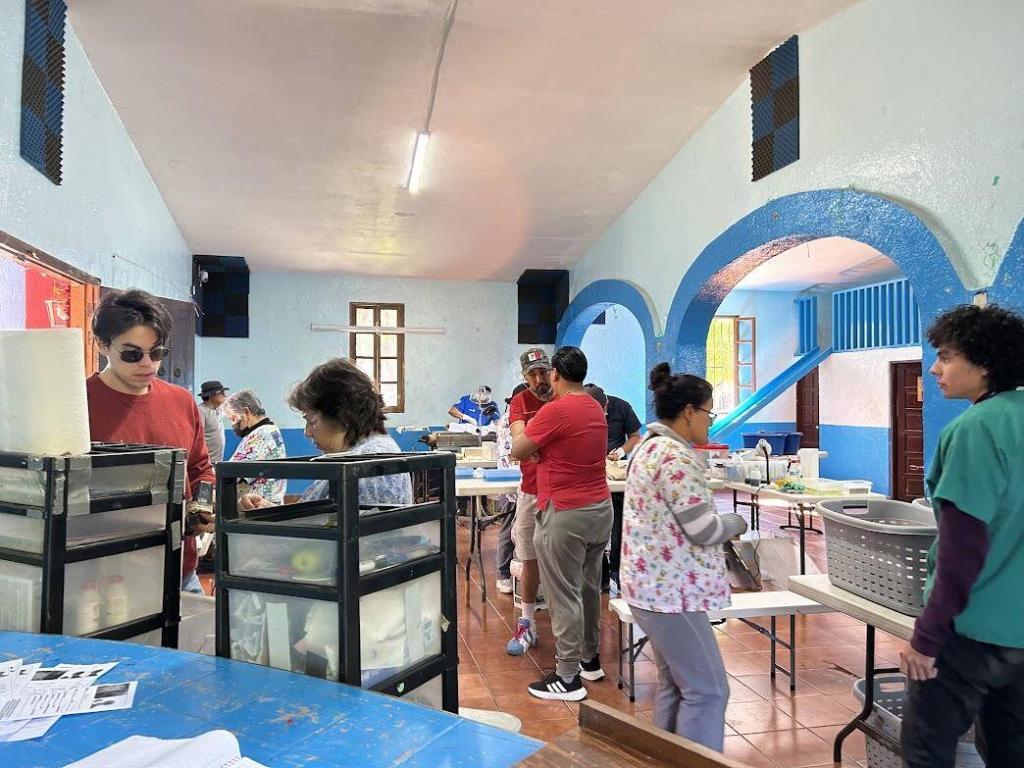Hypothetically one unsterilized cat can produce over a million offspring over an average life span of 12 years, assuming none of the offspring are sterilized. A fertile female dog can produce an average of two litters in one year, or up to 30 litters over an average lifespan of 11 years. Spaying and neutering just one male and one female dog can prevent more than 67,000 births in just six years.
To address the problem of uncontrolled pet reproduction and its tragic consequences for homeless offspring, Amigos de los Animales focuses on providing low-cost sterilization services to the Guanajuato community. Because female cats can start reproducing as early as four months old, we encourage people to sterilize their cats between 3 and 5 months of age.
Our latest sterilization campaign took place on December 10 at the Centro de Convivencia Familiar in El Encino Park in Pueblito de Rocha. Three veterinarians sterilized 79 pets, 37 dogs and 42 cats. Most were females, but 8 were male dogs and 10 were male cats.





Julia Salido, our campaign coordinator, praised the clients for bringing their male animals to the campaign. Female dogs go into heat once or twice a year whereas the males are always ready to procreate and can impregnate several females each day. The sterilization process is quicker and easier for males.
The Centro de Convivencia Familiar was a convenient location for us. It was easy to find, which isn’t always the case, and was very suitable for our needs. There were ample shaded places for people to wait with their pets. The park is fenced so there weren’t many stray animals, and the spacious building provided a convenient setting for setting up our workstations.


The day got off to a bad start when Antonia (Tony) López, who was registering the cases, was bitten on her leg by a frightened dog. She received medical treatment and, trooper that she is, was back helping in the afternoon. Because the workflow went so smoothly, we were able to finish the campaign around 4:30 p.m.
Those who participated in the campaign were veterinarians Karla Ivet Ahumada, Verónica Almaguer, Abril Herrera, Ricardo Montes de Oca, and Arturo Rocha; campaign coordinator Julia Salido; and volunteers Mary Beth Canavan, David Donato Garnica, Joel Gaytán Pacheco, Victoria Larrazolo, Tony López, Vero Mares, Adhán Mata, Luz Montiel, and myself. The restaurant La Trattoria donated lunches for the campaign workers.
This was our 23rd and last campaign of the year, bringing our total for 2023 to 1,440 cases. We are pleased to have prevented the addition of many unwanted offspring that might have ended up homeless on the streets, where they would have become subject to mistreatment and a hazard to people.
